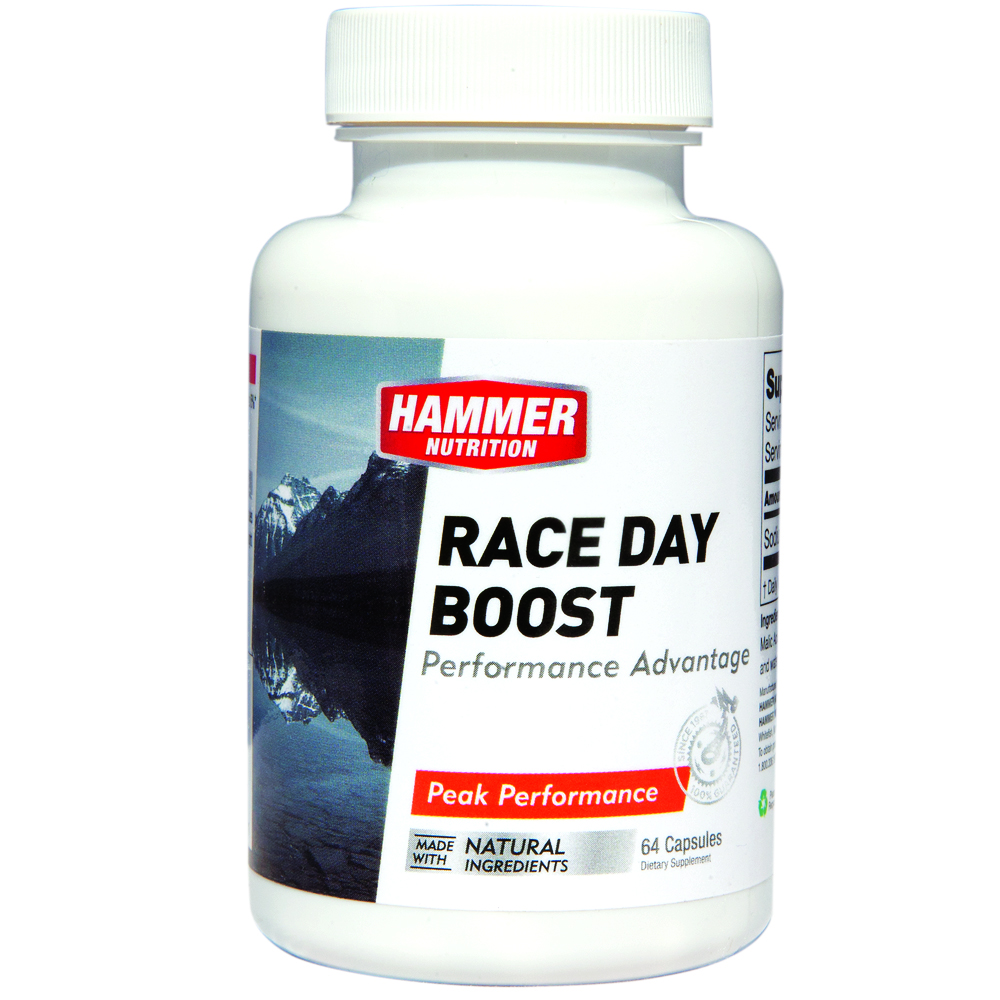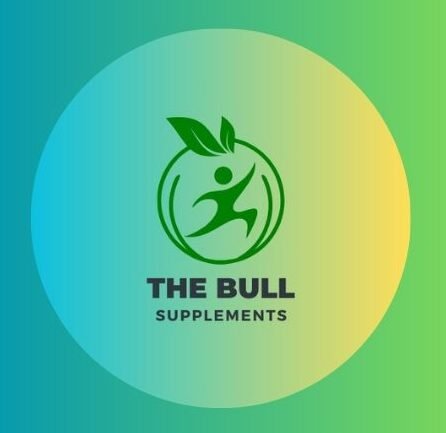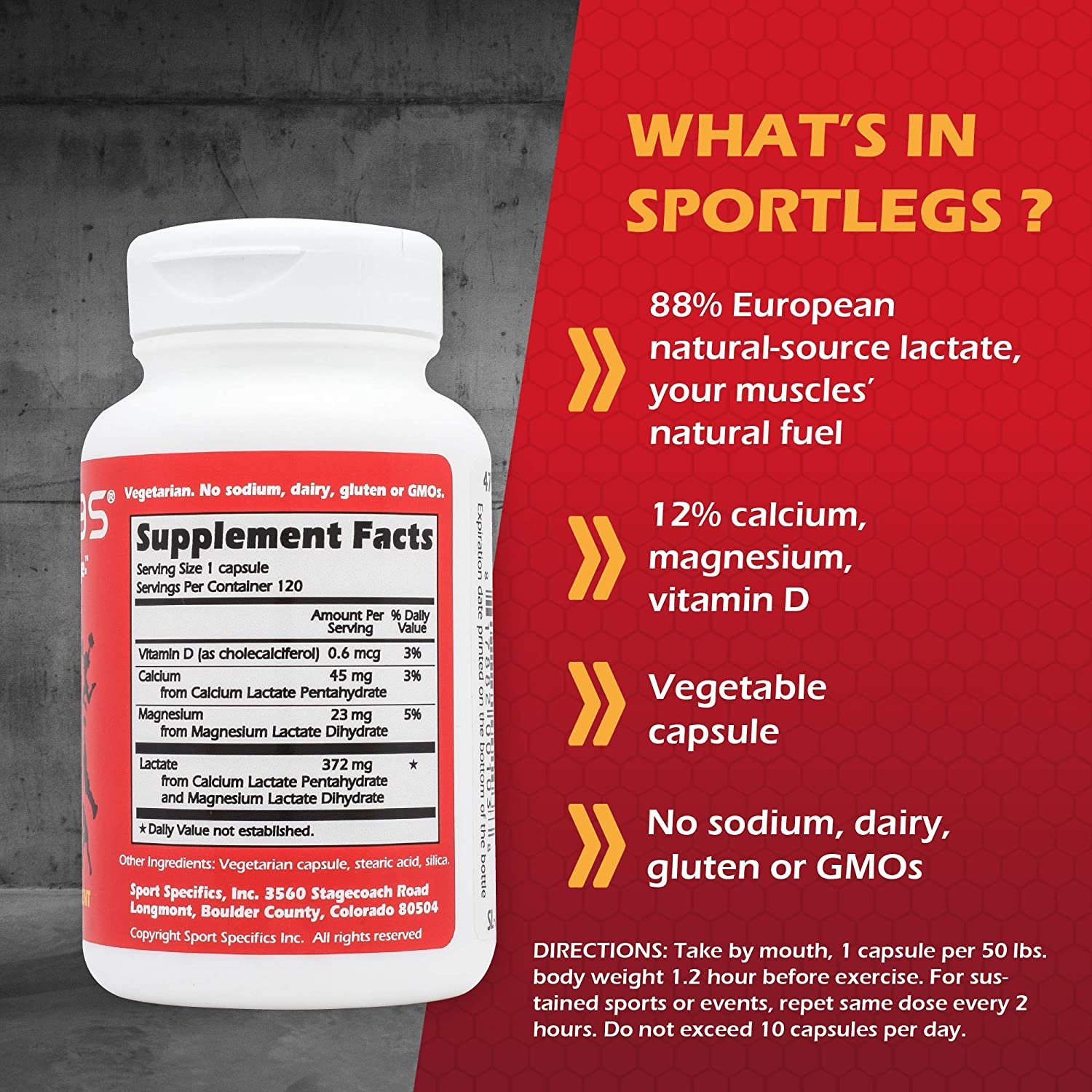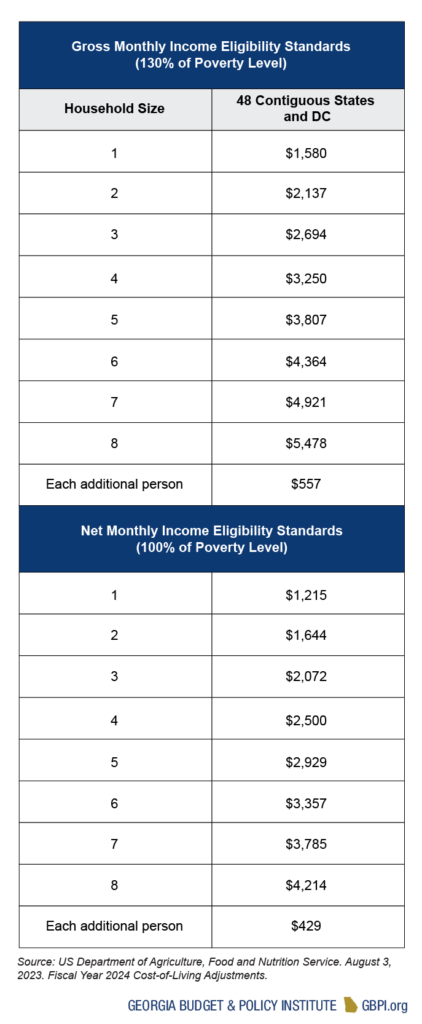Magnesium supplements can help reduce lactic acid buildup. They assist in improving lactate clearance and muscle function.
Seeking to enhance your athletic performance and recovery? Managing lactic acid effectively is crucial. Lactic acid accumulation during intense exercise leads to fatigue and soreness, impacting your workout and recovery times. By incorporating magnesium into your fitness regimen, you can potentially delay the onset of fatigue and accelerate recovery.
This mineral plays a pivotal role in energy production and muscular contraction, making it a go-to for athletes aiming to maintain peak performance. Opt for a balanced diet and consider magnesium supplementation to keep lactic acid at bay and your muscles functioning optimally. Stay ahead in your fitness journey by understanding and managing lactic acid with smart supplementation choices.
Introduction To Lactic Acid And Muscle Fatigue
Lactic acid and muscle fatigue are common during exercise. This introduction explores how they are linked and their effects on performance.
The Role Of Lactic Acid In Exercise
During intense exercise, your body requires more energy. When oxygen levels are low, your body produces lactic acid from glucose. This process allows energy production to continue. However, it leads to an increase in lactic acid levels in the muscles.
Symptoms Of Lactic Acid Buildup
- Burning sensation in muscles
- Muscle weakness
- Rapid breathing
- Nausea
- Excessive sweating
Recognizing these symptoms early can help manage and reduce lactic acid buildup effectively.
The Science Behind Lactic Acid Production
Lactic acid often gets a bad rap. It’s known for causing that burning feeling in muscles during intense exercise. But what really is lactic acid and why does it accumulate? Let’s dive into the science to understand this natural process and how we might mitigate its effects.
When muscles work hard, they need energy. Oxygen helps break down glucose for that energy. Sometimes, there’s not enough oxygen. That’s when muscles use anaerobic respiration. This process turns glucose into energy without oxygen. The side product is lactic acid.
Muscles switch to this type of energy production during high-intensity exercises. These include sprinting or heavy lifting. The body can’t sustain this for long. That’s because of the lactic acid buildup.
- Exercise intensity: Harder workouts mean more lactic acid.
- Oxygen availability: Less oxygen leads to more anaerobic respiration.
- Duration: The longer the intense activity, the more lactic acid.
- Training level: Trained muscles handle lactic acid better.
Supplements can help manage lactic acid levels. They support the body’s ability to process it. This can lead to better performance and less soreness post-workout.
Assessing The Impact Of Lactic Acid On Performance
Lactic acid often gets a bad rap in the fitness world. It’s commonly blamed for muscle fatigue during intense exercise. But how does it really affect your performance? Understanding this can guide athletes to the right supplements for reducing lactic acid build-up.
Effects On Muscle Efficiency
Lactic acid can hinder muscle contractions. During a workout, your body breaks down glucose for energy. This process sometimes creates more lactic acid than your body can quickly clear away. As lactic acid levels rise, muscles may feel tired and less responsive. This can make continuing exercise difficult.
- High lactic acid levels lead to ‘the burn’ feeling
- It can cause muscles to tire faster
- Supplements may help improve muscle efficiency
Recovery Time And Lactic Acid
Lactic acid is also a key player in your recovery time. After intense exercise, your body needs to clear the lactic acid from your muscles. The faster this happens, the quicker you recover.
| Without Supplement | With Supplement |
|---|---|
| Slower lactic acid removal | Faster recovery |
| Longer muscle soreness | Quicker return to training |
Effective supplements can support your body’s lactic acid processing. They help remove lactic acid more efficiently, leading to faster recovery times and less soreness.

Credit: natureslab.com
Key Supplements To Mitigate Lactic Acid
Lactic acid buildup can cause discomfort during and after intense workouts. Certain supplements can help reduce this. Let’s explore key supplements that are effective in mitigating lactic acid.
Magnesium: A Mineral Powerhouse
Magnesium plays a vital role in muscle function and energy production. This mineral helps to break down glucose into energy, reducing lactic acid buildup. Adequate magnesium levels ensure muscles can contract and relax effectively. It reduces the risk of cramps and soreness.
- Enhances oxygen delivery to muscles.
- Supports energy metabolism, aiding in lactic acid clearance.
- Improves muscle recovery post-exercise.
Foods rich in magnesium include nuts, seeds, and leafy greens. Supplements come in various forms like tablets, capsules, and powders.
The Buffering Power Of Sodium Bicarbonate
Sodium bicarbonate, commonly known as baking soda, acts as a buffer. It reduces the acidity in muscles during high-intensity exercise. This buffering effect can delay the onset of fatigue.
| Benefits of Sodium Bicarbonate |
|---|
| Neutralizes excess acid in muscles |
| Delays fatigue during exercise |
| Improves athletic performance |
Start with a small dose to assess tolerance, as it may cause gastrointestinal discomfort. Gradually increase as needed.
The Role Of Amino Acids In Recovery
Amino acids play a crucial role in muscle recovery. They are the building blocks of protein, aiding in repairing and rebuilding muscle tissues. After intense exercise, muscles are often sore due to an accumulation of lactic acid. Specific amino acids can help reduce this soreness by aiding in the removal of lactic acid. Let’s explore some of these powerful amino acids and their benefits.
Benefits Of Beta-alanine
Beta-Alanine is a popular supplement among athletes and fitness enthusiasts. It helps to improve performance and reduce muscle fatigue.
- Increases carnosine levels in muscles
- Delays the onset of muscle fatigue
- Reduces muscle acidity during high-intensity exercise
L-carnitine And Fat Metabolism
L-Carnitine is another amino acid that is essential in burning fat for energy. It transports fatty acids into the mitochondria where they are oxidized.
| Function | Benefit |
|---|---|
| Transports fatty acids | Boosts energy production |
| Improves endurance | Enhances athletic performance |
| Reduces lactic acid buildup | Decreases recovery time |
Antioxidants And Their Effect On Lactic Acid
Lactic acid can cause muscle fatigue during intense exercise. Antioxidants play a key role in reducing lactic acid buildup. They help neutralize free radicals produced during workouts. This leads to less muscle soreness and quicker recovery times.
Vitamin C: More Than Just An Immune Booster
Vitamin C is a powerful antioxidant. It supports muscle recovery after exercise. This vitamin helps clear out lactic acid. It keeps your muscles working longer and harder.
- Enhances lactic acid removal from muscles
- Boosts collagen production for joint health
- Supports immune function post-exercise
The Protective Properties Of Vitamin E
Vitamin E is another antioxidant that fights muscle damage. It protects cell membranes from oxidative stress. This may help reduce lactic acid production. Vitamin E also improves endurance by fighting muscle fatigue.
| Vitamin E Benefits | Impact on Lactic Acid |
|---|---|
| Protects muscles | Reduces buildup |
| Supports endurance | Delays fatigue |
Natural Remedies And Superfoods
Many athletes and fitness enthusiasts seek ways to reduce lactic acid build-up. Lactic acid can lead to muscle fatigue and soreness. Natural remedies and superfoods provide a gentle, effective approach. These options support the body’s natural processes.
The Magic Of Beetroot Juice
Beetroot juice stands out in the natural health community. It boosts stamina and improves muscle recovery. Its high nitrate content is key. Nitrates convert into nitric oxide. This improves blood flow and reduces oxygen consumption during exercise.
- Rich in antioxidants
- Decreases oxygen deficit
- Enhances athletic performance
Regular consumption of beetroot juice may lead to less lactic acid build-up. A glass daily could support your workout goals.
Turmeric: An Ancient Anti-inflammatory
Turmeric is a powerful spice. It has curcumin, which fights inflammation. This helps sore muscles recover faster. It also reduces pain linked to lactic acid.
| Benefits of Turmeric |
|---|
| Natural anti-inflammatory properties |
| Speeds up muscle recovery |
| Reduces muscle pain |
Include turmeric in your diet. Use it in smoothies, curries, or teas. Enjoy its health benefits.

Credit: www.wikihow.com
Lifestyle Changes To Complement Supplements
Understanding the right supplements can help reduce lactic acid buildup during exercise. But a holistic approach includes lifestyle tweaks. These changes boost the effectiveness of supplements. Let’s dive into strategies that naturally minimize lactic acid.
Hydration Strategies
Staying well-hydrated is key in managing lactic acid levels. Water helps flush out toxins, including excess lactic acid. Here are simple tips:
- Drink water throughout the day, not just during workouts.
- Carry a reusable water bottle to remind you to sip often.
- Monitor urine color – pale yellow means good hydration.
Optimizing Sleep And Recovery
Quality sleep aids muscle recovery and reduces lactic acid. Follow these guidelines:
- Aim for 7-9 hours of sleep nightly.
- Create a calm sleeping environment – dark, cool, and quiet.
- Establish a regular sleep schedule even on weekends.
Combine these lifestyle changes with the right supplements for the best results against lactic acid buildup.
Practical Tips For Supplement Use
Embarking on a fitness journey brings various challenges, one being muscle fatigue due to lactic acid buildup. Understanding how to use supplements effectively can play a pivotal role in reducing this discomfort.
Timing Your Intake
Supplement timing is crucial for optimal results. Ingesting supplements before or after workouts can make a significant difference.
- Pre-Workout: Taking supplements 30 minutes before exercising can prepare muscles for stress.
- Post-Workout: Supplements right after exercise can aid in recovery and lactic acid removal.
Dosage Considerations For Athletes
Athletes need to tailor supplement doses to their needs. Consider factors like weight, exercise intensity, and duration.
| Weight Range | Low Intensity | High Intensity |
|---|---|---|
| <50kg | Small dose | Moderate dose |
| 50-70kg | Moderate dose | Increased dose |
| >70kg | Increased dose | High dose |
Consult a professional for precise dosage. Regular assessment ensures proper supplementation.
Safety And Considerations
When choosing supplements to reduce lactic acid, safety is key. It’s important to understand how these supplements interact with other medications and when to seek advice from a healthcare professional.
Understanding Supplement Interactions
Supplements that reduce lactic acid can interact with other drugs.
- Antidiabetic drugs: Can alter blood sugar levels.
- Blood thinners: May increase bleeding risk.
- Antidepressants: Could change effectiveness.
Always check supplement ingredients. Avoid potential health risks.
When To Consult A Healthcare Professional
It’s crucial to talk to a doctor before starting any new supplement.
- Existing health conditions: Ensure safety with your conditions.
- Pregnancy: Some supplements can be unsafe.
- Regular medication: Avoid harmful interactions.
Seek professional advice to tailor supplements to your needs.
Conclusion: Balancing Supplements And Training
Finding the right balance between supplements and training is key. This balance helps reduce lactic acid effectively. Supplements alone won’t solve everything. Training adjustments are vital too. Together, they offer the best results.
Integrating Supplements Into A Holistic Approach
Choosing the right supplements can enhance your workout regimen. It’s not just about taking any supplement. You need the ones that fit your specific needs. Magnesium, sodium bicarbonate, and branched-chain amino acids are popular choices. These can help manage lactic acid levels.
- Magnesium aids muscle function and reduces fatigue.
- Sodium bicarbonate buffers lactic acid produced during exercise.
- Branched-chain amino acids (BCAAs) support muscle recovery.
Integrating these supplements should be part of a larger plan. This plan includes proper diet, hydration, and rest. All these factors work together to improve your performance and recovery.
Listening To Your Body’s Signals
It’s crucial to pay attention to how your body responds to both supplements and training. Not everyone will react the same way to the same supplements. Notice any changes in your performance or recovery time. These changes can tell you a lot about what’s working.
Signs to watch for include:
| Good Signs | Signs of Concern |
|---|---|
| Better endurance | Increased fatigue |
| Faster recovery | Muscle cramps |
| Less muscle soreness | Nausea or discomfort |
If negative signs occur, reassess your supplement intake and training load. Sometimes, small adjustments can make a big difference. Always consult with a healthcare professional before starting any new supplement regimen. This ensures safety and effectiveness.
Remember, supplements are helpers, not replacements for good training and nutrition. Your body’s signals should guide these decisions. Listen and adjust as needed. This approach will help you achieve the best balance and results.

Credit: www.paloaltobicycles.com
Frequently Asked Questions
What Vitamin Helps Reduce Lactic Acid?
Vitamin B-complex, particularly B1 (thiamine), helps reduce lactic acid buildup during exercise.
What To Take To Reduce Lactic Acid?
Stay hydrated and maintain a balanced diet rich in magnesium and potassium. Engage in regular exercise and consider supplements like BCAAs. Opt for massages to enhance circulation.
Does Magnesium Neutralize Lactic Acid?
Magnesium does not directly neutralize lactic acid but can facilitate its clearance by improving muscle function.
What Is The Best Medicine For Lactic Acid Build Up?
The best medicine for lactic acid build-up is often hydration and electrolyte replenishment. Light stretching and massage can also alleviate symptoms. Always consult a healthcare professional for personalized advice.
Conclusion
Understanding the right supplements to combat lactic acid buildup is crucial for any fitness enthusiast. Embracing a combination of magnesium, BCAAs, and sodium bicarbonate can significantly alleviate muscle soreness and enhance recovery. Remember, optimal results come from a tailored approach, so consider your unique needs and consult with a healthcare professional.
Elevate your performance and recovery by choosing the supplements that work best for you.










